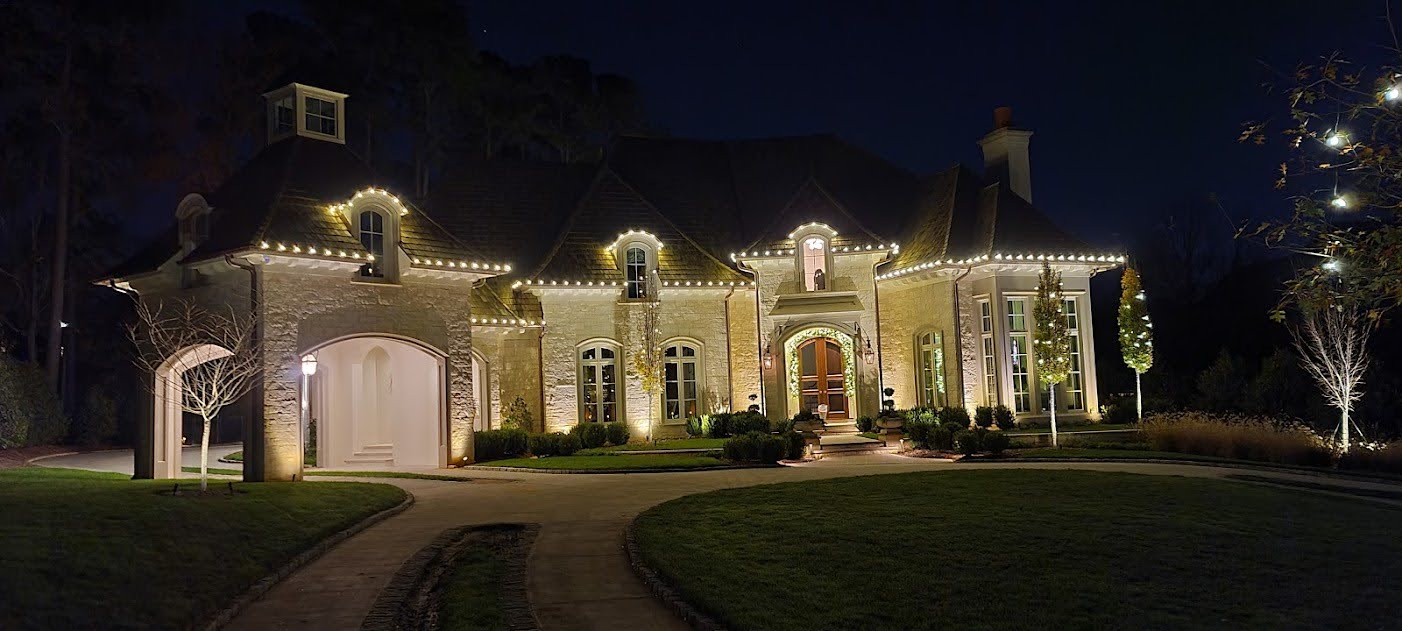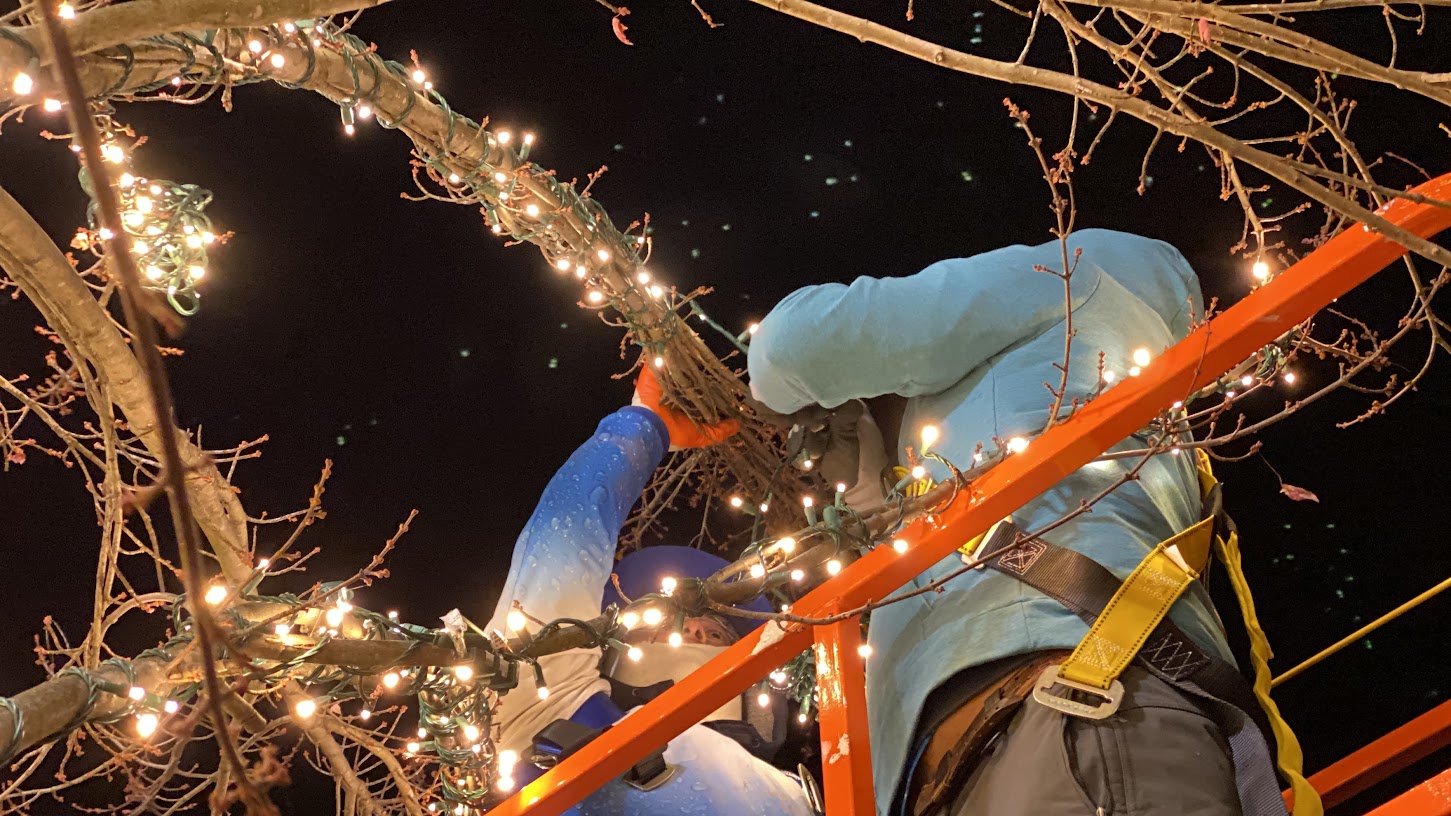We use cookies to improve your experience on our site. By using our site, you consent to the use of cookies. Rejecting cookies will prevent non-essential cookies from loading.
Blog
Our Top Blog Posts

Navigating the Peaks and Valleys: Strategies for Managing the Seasonal Nature of Your Christmas Light Business
Running a Christmas light installation business can be a rewarding and lucrative venture, but it comes with its own set of challenges, particularly due to the seasonal nature of the industry. As a business owner, it's crucial to understand and effectively manage the ebbs and flows of demand throughout the year. In this blog post, we'll explore various strategies for navigating the seasonal nature of the Christmas light business, ensuring your company thrives during the busy season and remains stable during the off-season.

Maximizing Revenue During the Peak Season
The peak season for Christmas light installation typically runs from late October through early January. This is when demand for your services will be at its highest, and it's essential to make the most of this limited time window. Here are some strategies to maximize revenue during the peak season:
1. Offer a range of services and packages: Diversify your offerings to cater to a wide range of customers and budgets. This can include basic light installation, premium design packages, and add-on services like tree and wreath lighting.
2. Implement a strategic pricing structure: Consider offering early bird discounts to encourage customers to book their installations well in advance. As the peak season approaches, gradually increase your prices to reflect the higher demand.
3. Optimize your scheduling: Efficient scheduling is key to maximizing the number of installations you can complete during the peak season. Use scheduling software to streamline your booking process and ensure your team is working at full capacity.
4. Invest in marketing: Allocate a portion of your budget to targeted marketing efforts during the months leading up to the peak season. This can include social media advertising, local print ads, and search engine optimization to ensure your business is visible to potential customers.

Managing Cash Flow and Expenses
One of the biggest challenges of running a seasonal business is managing cash flow throughout the year. It's essential to be proactive in budgeting and saving during the peak season to ensure you have sufficient funds to cover expenses during the off-season. Here are some tips for managing cash flow and expenses:
1. Create a detailed budget: Develop a comprehensive budget that accounts for all your expenses, including equipment, labor, marketing, and overhead costs. Be sure to factor in any seasonal fluctuations in revenue and expenses.
2. Set aside a portion of peak season profits: During the busy season, allocate a percentage of your profits to a savings account or emergency fund. This will provide a financial cushion to help you weather any unexpected expenses or slower periods.
3. Negotiate with suppliers: Work with your suppliers to establish favorable payment terms or discounts for bulk purchases. This can help you manage expenses and improve cash flow throughout the year.
4. Monitor your expenses closely: Regularly review your expenses and look for opportunities to cut costs without compromising the quality of your services. This may involve renegotiating contracts, finding new suppliers, or streamlining your operations.

Staying Productive During the Off-Season
While the off-season may be slower in terms of installations, it's important to remain productive and use this time to prepare for the next peak season. Here are some ways to stay busy and productive during the off-season:
1. Offer complementary services: Consider offering related services that can generate revenue during the off-season, such as outdoor lighting maintenance, event lighting, or holiday decoration storage solutions.
2. Focus on planning and strategy: Use the off-season to review your business plan, set goals for the upcoming year, and develop strategies for growth and improvement.
3. Invest in training and education: Take advantage of the slower period to provide training for your team, attend industry conferences, or pursue certifications to enhance your skills and knowledge.
4. Maintain and upgrade equipment: Dedicate time during the off-season to thoroughly inspect, maintain, and upgrade your equipment. This will ensure you're ready to hit the ground running when the peak season arrives.
5. Nurture customer relationships: Stay in touch with your customers throughout the year by sending newsletters, offering off-season promotions, or providing helpful content related to outdoor lighting and holiday decorating.

Managing the seasonal nature of the Christmas light business requires careful planning, financial savvy, and a proactive approach to staying productive year-round. By implementing strategies to maximize revenue during the peak season, effectively manage cash flow and expenses, and remain engaged during the off-season, you can build a thriving and sustainable business that brings joy and light to your customers' lives.
For more insights on essential off-season tactics, check out our blog post: Off-Season Strategies: How to Prepare Your Christmas Lights Business for a Successful Upcoming Season Discover valuable tips to set your business up for success!
Remember, the key to success in this industry is to stay adaptable, creative, and focused on providing exceptional service to your customers. With the right mindset and strategies in place, you can navigate the challenges of seasonality and build a Christmas light installation business that shines brightly all year long.

1. Q: What is the typical peak season for a Christmas light installation business?
A: The peak season for Christmas light installation usually runs from late October through early January.
2. Q: How can I maximize revenue during the peak season?
A: To maximize revenue, offer a range of services and packages, implement a strategic pricing structure, optimize your scheduling, and invest in targeted marketing efforts.
3. Q: Why is it important to manage cash flow and expenses in a seasonal business?
A: Managing cash flow and expenses is crucial to ensure you have sufficient funds to cover costs during the off-season and maintain the financial health of your business.
4. Q: What are some strategies for managing cash flow and expenses?
A: Strategies include creating a detailed budget, setting aside a portion of peak season profits, negotiating with suppliers, and closely monitoring expenses.
5. Q: How can I stay productive during the off-season?
A: During the off-season, focus on offering complementary services, planning and strategizing, investing in training and education, maintaining and upgrading equipment, and nurturing customer relationships.

6. Q: What are some complementary services I can offer during the off-season?
A: Complementary services may include outdoor lighting maintenance, event lighting, or holiday decoration storage solutions.
7. Q: Why should I invest in training and education during the off-season?
A: Investing in training and education during the slower months can help you enhance your skills, stay up-to-date with industry trends, and be better prepared for the next peak season.
8. Q: How can I nurture customer relationships throughout the year?
A: Nurture customer relationships by sending newsletters, offering off-season promotions, and providing helpful content related to outdoor lighting and holiday decorating.
9. Q: What is the key to success in managing a seasonal Christmas light installation business?
A: The key to success is staying adaptable, creative, and focused on providing exceptional service to your customers while implementing effective strategies for managing the challenges of seasonality.
10. Q: Is this blog post suitable for both new and experienced Christmas light installation business owners?
A: Yes, this comprehensive guide offers valuable insights and actionable tips for both seasoned professionals and those just starting out in the Christmas light installation industry.


Jason Geiman
Jason Geiman parlayed his early passion for festive lighting into a thriving Christmas décor installation company which he founded and grew for over 4 years before selling the business in 2018. Now, he draws from his experience scaling a holiday lighting venture to help other Christmas lighting companies maximize their success. Jason feels compelled to share shortcuts he learned running his decoration operation. Jason has made it his mission to enable both residential and commercial clients to execute jaw-dropping lighting displays more easily. He loves experimenting with the latest high-tech LED bulb innovations to incorporate into his instructional programs and resources for those running their own Christmas lighting businesses. After selling his original company, he reinvented himself - driven as ever to spread seasonal magic, but now by helping others grow their holiday lighting ventures successfully. Follow Jason for regular tips on taking your Christmas lights business to the next level!

Navigating the Peaks and Valleys: Strategies for Managing the Seasonal Nature of Your Christmas Light Business
Running a Christmas light installation business can be a rewarding and lucrative venture, but it comes with its own set of challenges, particularly due to the seasonal nature of the industry. As a business owner, it's crucial to understand and effectively manage the ebbs and flows of demand throughout the year. In this blog post, we'll explore various strategies for navigating the seasonal nature of the Christmas light business, ensuring your company thrives during the busy season and remains stable during the off-season.

Maximizing Revenue During the Peak Season
The peak season for Christmas light installation typically runs from late October through early January. This is when demand for your services will be at its highest, and it's essential to make the most of this limited time window. Here are some strategies to maximize revenue during the peak season:
1. Offer a range of services and packages: Diversify your offerings to cater to a wide range of customers and budgets. This can include basic light installation, premium design packages, and add-on services like tree and wreath lighting.
2. Implement a strategic pricing structure: Consider offering early bird discounts to encourage customers to book their installations well in advance. As the peak season approaches, gradually increase your prices to reflect the higher demand.
3. Optimize your scheduling: Efficient scheduling is key to maximizing the number of installations you can complete during the peak season. Use scheduling software to streamline your booking process and ensure your team is working at full capacity.
4. Invest in marketing: Allocate a portion of your budget to targeted marketing efforts during the months leading up to the peak season. This can include social media advertising, local print ads, and search engine optimization to ensure your business is visible to potential customers.

Managing Cash Flow and Expenses
One of the biggest challenges of running a seasonal business is managing cash flow throughout the year. It's essential to be proactive in budgeting and saving during the peak season to ensure you have sufficient funds to cover expenses during the off-season. Here are some tips for managing cash flow and expenses:
1. Create a detailed budget: Develop a comprehensive budget that accounts for all your expenses, including equipment, labor, marketing, and overhead costs. Be sure to factor in any seasonal fluctuations in revenue and expenses.
2. Set aside a portion of peak season profits: During the busy season, allocate a percentage of your profits to a savings account or emergency fund. This will provide a financial cushion to help you weather any unexpected expenses or slower periods.
3. Negotiate with suppliers: Work with your suppliers to establish favorable payment terms or discounts for bulk purchases. This can help you manage expenses and improve cash flow throughout the year.
4. Monitor your expenses closely: Regularly review your expenses and look for opportunities to cut costs without compromising the quality of your services. This may involve renegotiating contracts, finding new suppliers, or streamlining your operations.

Staying Productive During the Off-Season
While the off-season may be slower in terms of installations, it's important to remain productive and use this time to prepare for the next peak season. Here are some ways to stay busy and productive during the off-season:
1. Offer complementary services: Consider offering related services that can generate revenue during the off-season, such as outdoor lighting maintenance, event lighting, or holiday decoration storage solutions.
2. Focus on planning and strategy: Use the off-season to review your business plan, set goals for the upcoming year, and develop strategies for growth and improvement.
3. Invest in training and education: Take advantage of the slower period to provide training for your team, attend industry conferences, or pursue certifications to enhance your skills and knowledge.
4. Maintain and upgrade equipment: Dedicate time during the off-season to thoroughly inspect, maintain, and upgrade your equipment. This will ensure you're ready to hit the ground running when the peak season arrives.
5. Nurture customer relationships: Stay in touch with your customers throughout the year by sending newsletters, offering off-season promotions, or providing helpful content related to outdoor lighting and holiday decorating.

Managing the seasonal nature of the Christmas light business requires careful planning, financial savvy, and a proactive approach to staying productive year-round. By implementing strategies to maximize revenue during the peak season, effectively manage cash flow and expenses, and remain engaged during the off-season, you can build a thriving and sustainable business that brings joy and light to your customers' lives.
For more insights on essential off-season tactics, check out our blog post: Off-Season Strategies: How to Prepare Your Christmas Lights Business for a Successful Upcoming Season Discover valuable tips to set your business up for success!
Remember, the key to success in this industry is to stay adaptable, creative, and focused on providing exceptional service to your customers. With the right mindset and strategies in place, you can navigate the challenges of seasonality and build a Christmas light installation business that shines brightly all year long.

1. Q: What is the typical peak season for a Christmas light installation business?
A: The peak season for Christmas light installation usually runs from late October through early January.
2. Q: How can I maximize revenue during the peak season?
A: To maximize revenue, offer a range of services and packages, implement a strategic pricing structure, optimize your scheduling, and invest in targeted marketing efforts.
3. Q: Why is it important to manage cash flow and expenses in a seasonal business?
A: Managing cash flow and expenses is crucial to ensure you have sufficient funds to cover costs during the off-season and maintain the financial health of your business.
4. Q: What are some strategies for managing cash flow and expenses?
A: Strategies include creating a detailed budget, setting aside a portion of peak season profits, negotiating with suppliers, and closely monitoring expenses.
5. Q: How can I stay productive during the off-season?
A: During the off-season, focus on offering complementary services, planning and strategizing, investing in training and education, maintaining and upgrading equipment, and nurturing customer relationships.

6. Q: What are some complementary services I can offer during the off-season?
A: Complementary services may include outdoor lighting maintenance, event lighting, or holiday decoration storage solutions.
7. Q: Why should I invest in training and education during the off-season?
A: Investing in training and education during the slower months can help you enhance your skills, stay up-to-date with industry trends, and be better prepared for the next peak season.
8. Q: How can I nurture customer relationships throughout the year?
A: Nurture customer relationships by sending newsletters, offering off-season promotions, and providing helpful content related to outdoor lighting and holiday decorating.
9. Q: What is the key to success in managing a seasonal Christmas light installation business?
A: The key to success is staying adaptable, creative, and focused on providing exceptional service to your customers while implementing effective strategies for managing the challenges of seasonality.
10. Q: Is this blog post suitable for both new and experienced Christmas light installation business owners?
A: Yes, this comprehensive guide offers valuable insights and actionable tips for both seasoned professionals and those just starting out in the Christmas light installation industry.


Jason Geiman
Jason Geiman parlayed his early passion for festive lighting into a thriving Christmas décor installation company which he founded and grew for over 4 years before selling the business in 2018. Now, he draws from his experience scaling a holiday lighting venture to help other Christmas lighting companies maximize their success. Jason feels compelled to share shortcuts he learned running his decoration operation. Jason has made it his mission to enable both residential and commercial clients to execute jaw-dropping lighting displays more easily. He loves experimenting with the latest high-tech LED bulb innovations to incorporate into his instructional programs and resources for those running their own Christmas lighting businesses. After selling his original company, he reinvented himself - driven as ever to spread seasonal magic, but now by helping others grow their holiday lighting ventures successfully. Follow Jason for regular tips on taking your Christmas lights business to the next level!
Copyright ©2025 All Right Reserved website designed by christmaslights.io
Terms of Service / Privacy Policy
Have questions or need assistance?
Contact us at (855)619-LITE

